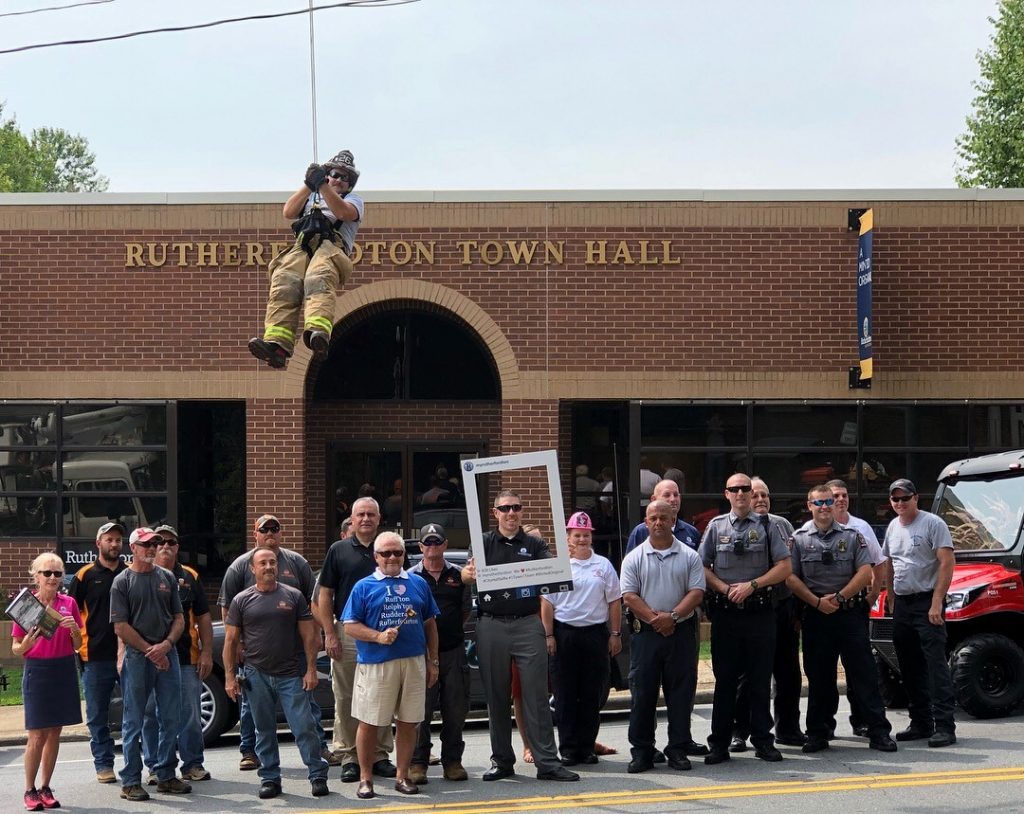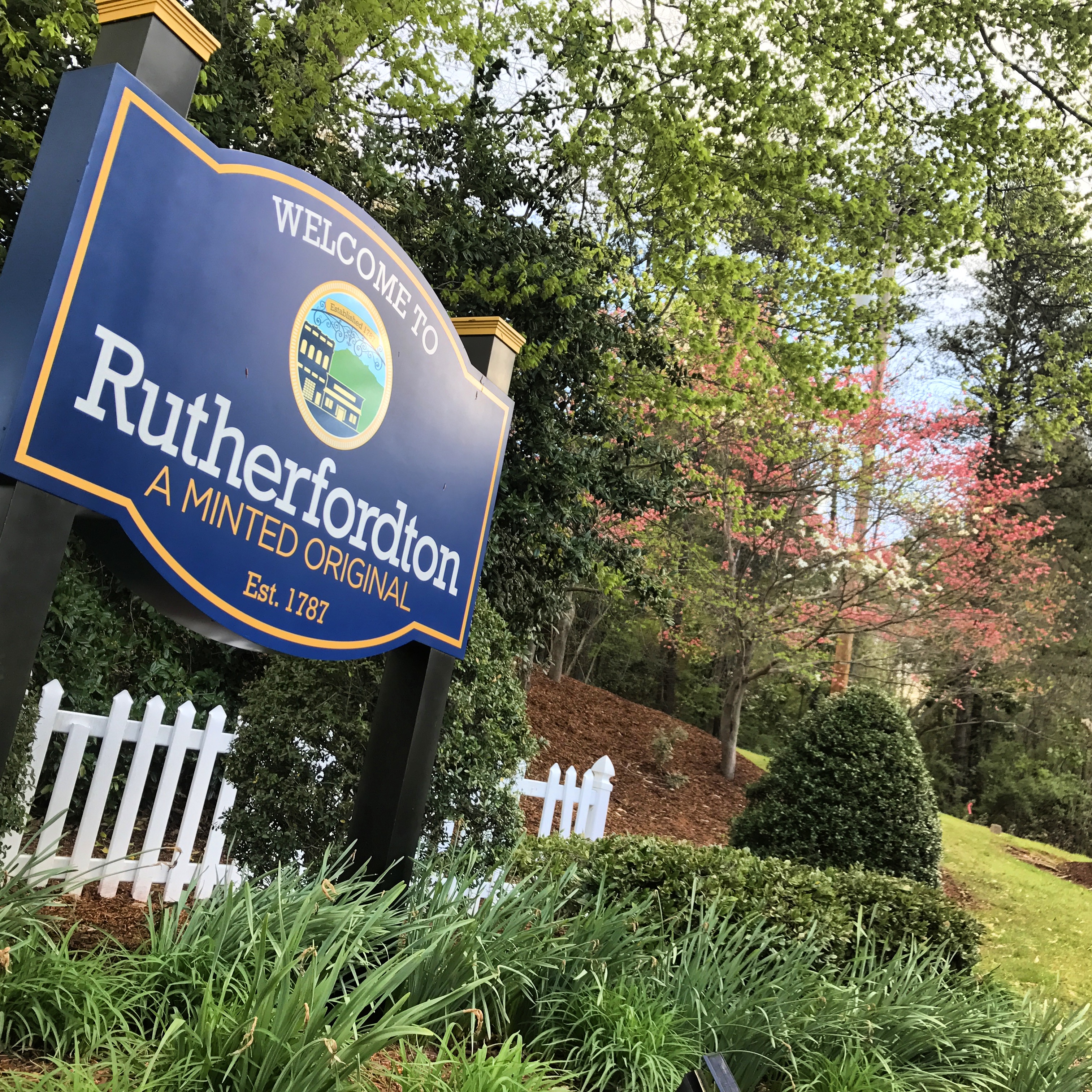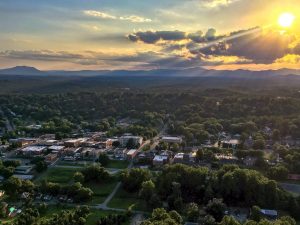
I have volunteered and researched how open data from government is used by community volunteers. This kind of work is termed civic tech.
Can this positive community/government relationship extend to smaller communities? North Carolina has seven local groups, called “brigades,” in the spirit of volunteer fire brigades. I have blogged about a few NC communities and the interests and barriers they face for civic tech.
Rutherfordton – Downtown WIFI, public data, connecting conversations?

I spoke with town manager Doug Barrick, town manager, and Stephanie Rzonca, Community Development Director. Rutherfordton (population 4200) is a town in the NC foothills that has a robust, free downtown WIFI service. They also have a fiber backbone that reaches throughout town. The town government sponsored the fiber installation, which is now run by a for-profit business. Rutherfordton is the county seat for Rutherford County, population 66,000.
How does Rutherfordton handle its data?
Several documents are posted the town’s website: annual budget, annual audit, and some statistics around operations of utilities, such as the sewer system. Other “raw data” is not online, but is in monthly reports to City Council. These are “a snapshot of things,” according to Barrick. For example, here is the May 2019 Performance Report.
The kinds of data regularly reported:
- Number of street lights replaced
- Street signs replaced
- Number of parking tickets issues
- Cases closed by the Rutherford Police Department
- EMS calls
- Fire Calls
- Total tonnage of recycling picked up
- Zoning permits issued
- Books checked out of library
- Number or programs and participation therein at library

Public data and Internet access are on citizen minds in two ways:
- Vacant buildings. Barrick reports that citizens want to know why they are vacant, and “What’s going on?” People want a strong downtown, but some businesses have a hard time competing with larger retailers nearby. Barrick notes there is not a lot of direct control the city government exercise on private property. However, vacancies are a concern for many citizens.
- Access to high-speed Internet. Outside of Rutherfordton, there is limited Internet access. Rzonca noted that some people come in to town to access the Internet. She cited high school students needing to do assignments. This is an important need for access and education. Barrick sees the Rutherford County Commission working on this need.
Barrick thinks that some kind of hackathon might be useful. The broad goal would be using data to help town government tell the story of their work on job creation and commercial concerns:
- We want to know more about our daytime working population. Workers of various kinds (at home, small business, multi-job workers) to help the town’s work on job creation.
- We are supporting a “love where you live/shop local” focus to maintain a strong local business environment. This is a challenge, given people seeking bargains at Walmart and similar national and international stores. How to track point of sale, sales tax collection, and shopping trends would be valuable data for the local business community.
An online space for connecting conversations on town matters?
Finally, Barrick offered a vision to link on-the-street and on-line conversations about local issues. Could the town create an online platform to help link these kind of conversations? “No matter where the conversation starts, it has a unique place for it to live,” is Barrick’s vision. He noted the town government is on Facebook, Twitter, and Instagram.
How can things be better drawn together, so people are connected in conversation?
Many people have tried to create various kinds of “civic conversation platforms”. To my knowledge, none have succeeded (caveat: platforms like NextDoor have seen success at the level of neighborhoods where there is already a strong sense of identity; I suspect such platforms most often succeed when they extend existing association activities online).
That said (fair warning: thinking out loud here), I do believe that it’s possible for the town to proactively integrate conversations by capturing and posting offline interactions on a central forum and sharing online interactions there (perhaps on the town website or on a forum platform like Discourse) back in offline venues. There may also be a role here for community organizations to help.
It’s important to note, however, that the online platform doesn’t do any magic here. In fact, probably the most powerful step toward this would be to come up with a fairly structured way to capture interactions and outcomes, augmented by, e.g., video or transcripts of the offline conversations. This might allow key points of consensus or disagreement in a particular forum to be efficiently shared without a huge amount of staff or volunteer work.